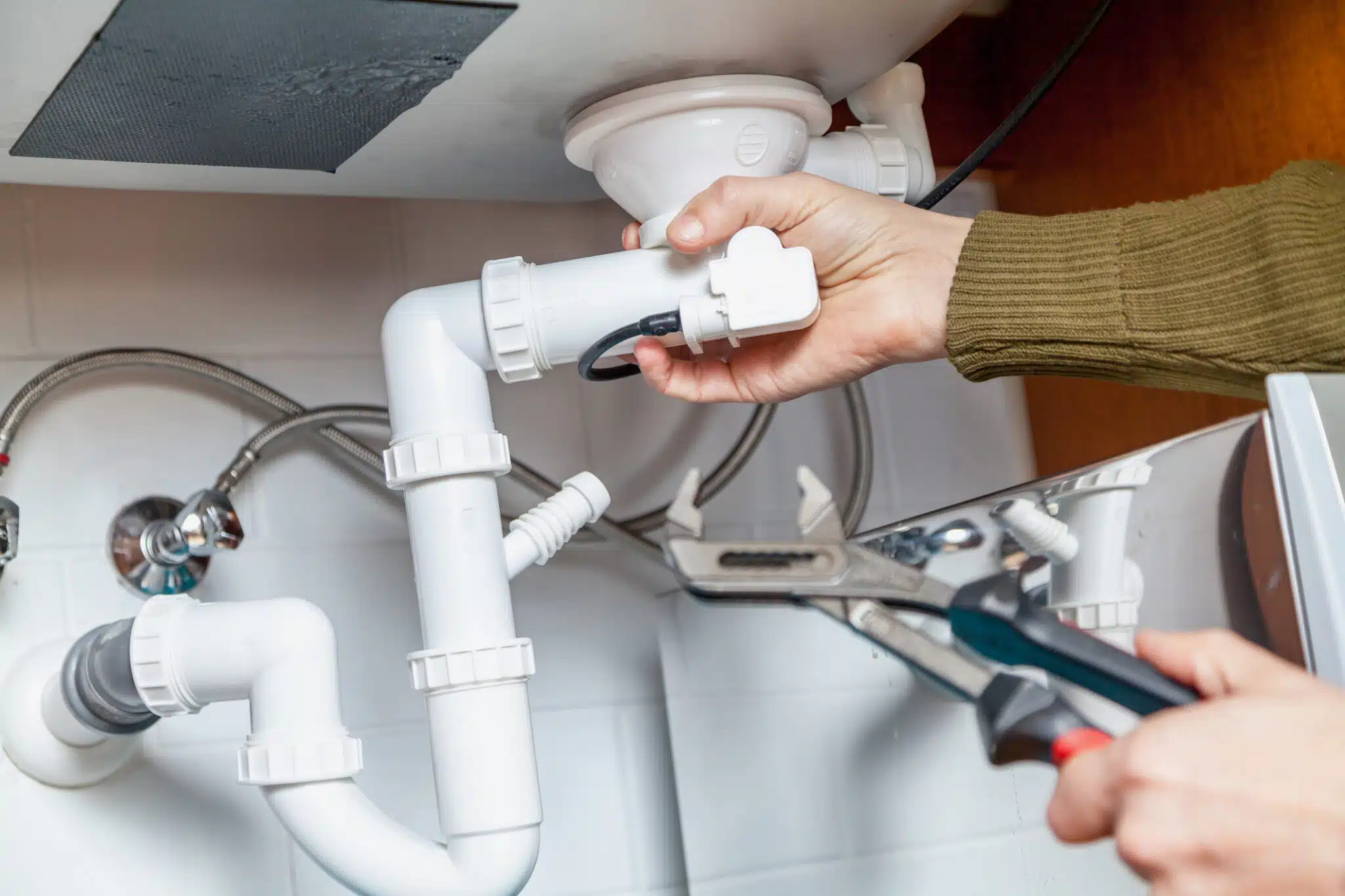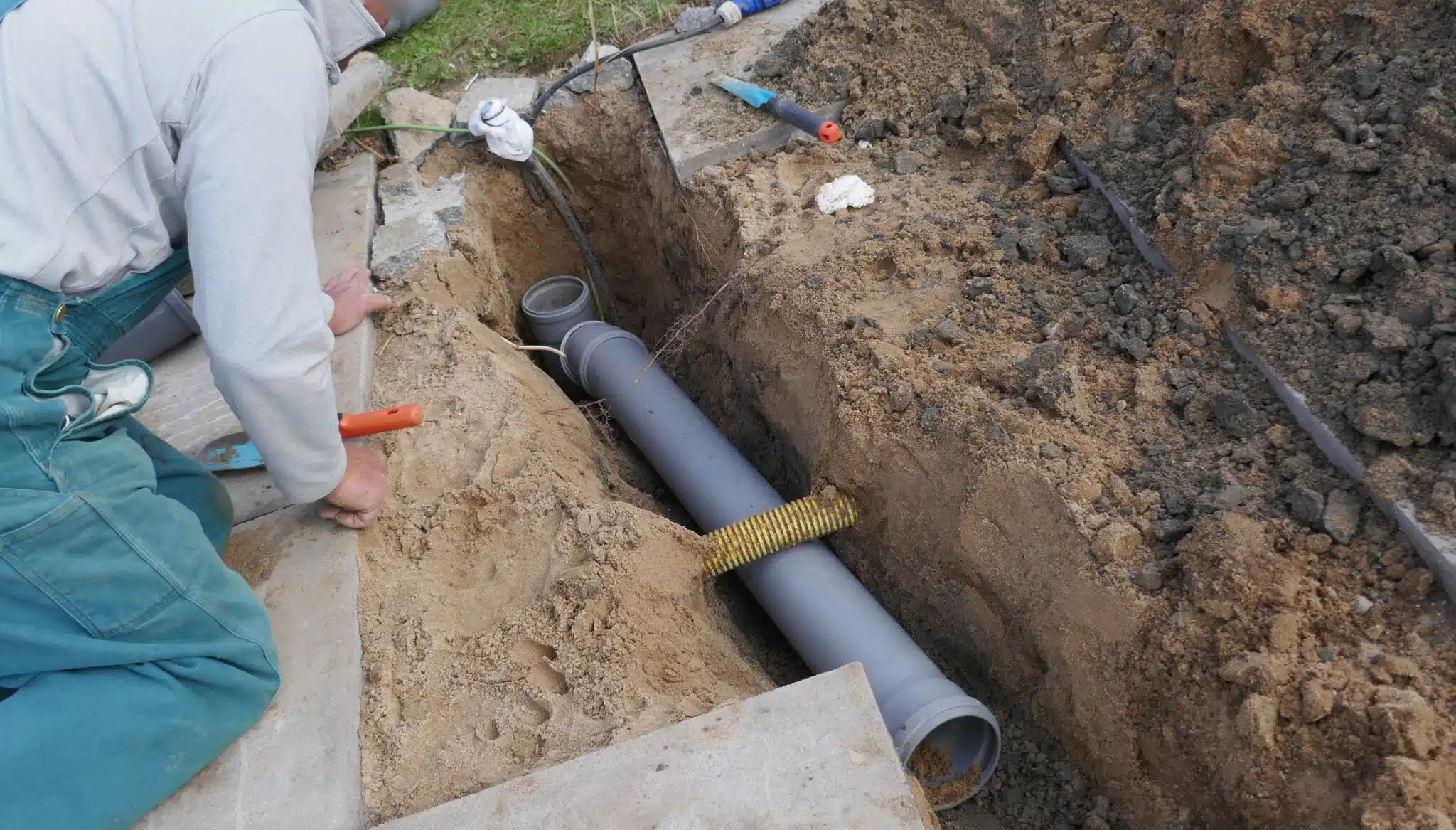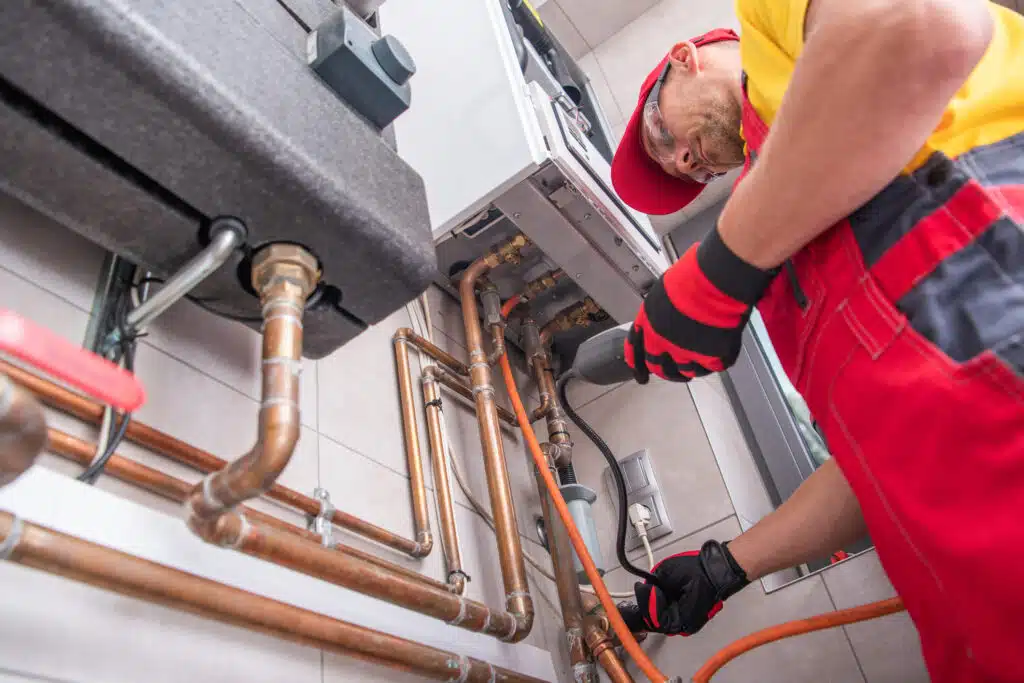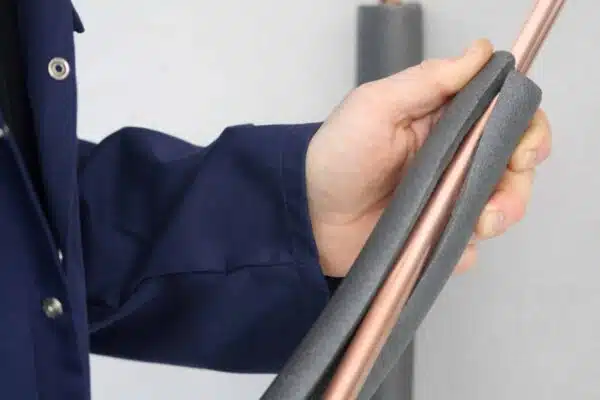Pipe replacement is an essential part of home maintenance that many homeowners overlook until serious problems arise. Aging or damaged pipes can lead to leaks, water contamination, and costly repairs if left unchecked. Whether you’re dealing with outdated plumbing materials or frequent water pressure issues, knowing when and how to replace your pipes is crucial.
In 2025, advancements in plumbing technology and sustainable materials make pipe replacement more efficient and eco-friendly than ever before. Homeowners in Harrisburg, PA, should stay informed about the best options for their homes, especially considering the region’s seasonal weather changes.
This guide will cover everything you need to know about pipe replacement, from identifying warning signs to choosing the right materials and professionals for the job. By the end, you’ll have a clear understanding of how to protect your home’s plumbing system and ensure a reliable water supply for years to come.
Signs You Need a Pipe Replacement
Your home’s plumbing system is built to last, but pipes don’t last forever. Over time, wear and tear can lead to serious issues that may require a full pipe replacement. Ignoring early warning signs can result in costly damage, so it’s important to recognize when your pipes are reaching the end of their lifespan.
1. Frequent Leaks and Water Damage
If you’re constantly repairing leaks, it may be time to replace your pipes instead of patching them. Small leaks can indicate a larger problem, such as widespread corrosion or deteriorating materials. Water stains on walls, ceilings, or floors are also red flags that should not be ignored.
2. Discolored or Rusty Water
Brown or yellow-tinted water coming from your taps could mean your pipes are corroding from the inside. Rust buildup can affect water quality, making it unsafe for drinking or cooking. This issue is especially common in older galvanized steel pipes, which should be replaced with modern materials like PEX or copper.
3. Low Water Pressure
A sudden drop in water pressure throughout your home could be a sign of buildup or blockages inside your pipes. Corrosion, mineral deposits, and pipe damage can restrict water flow, making daily tasks like showering or washing dishes frustrating.
4. Unpleasant Odors or Strange Noises
Foul-smelling water or gurgling sounds coming from your pipes can indicate bacterial growth or trapped air, both of which may stem from failing pipes. If you hear banging noises (also known as “water hammer”), it could mean your pipes are loose, weakened, or in need of replacement.
5. Your Home Has Old or Outdated Pipes
If your home was built before the 1980s and still has its original plumbing, your pipes may be made of materials that are no longer recommended, such as lead or polybutylene. These outdated materials can pose health risks and are prone to failure, making pipe replacement a necessary upgrade.
By addressing these warning signs early, homeowners in Harrisburg, PA, can prevent serious plumbing failures and maintain a safe, efficient water system.

Common Types of Plumbing Pipes
Choosing the right material for your pipe replacement is essential for long-term durability, water quality, and efficiency. Different types of pipes have unique benefits, and understanding their characteristics can help homeowners make informed decisions.
1. Copper Pipes
Copper has been a trusted plumbing material for decades due to its durability and resistance to corrosion. It can handle high water pressure and temperature fluctuations, making it a great choice for both hot and cold water lines. However, copper pipes can be more expensive than other options, and installation requires soldering.
2. PEX (Cross-Linked Polyethylene) Pipes
PEX pipes have gained popularity in recent years due to their flexibility and ease of installation. They are resistant to freezing, making them ideal for cold climates like Harrisburg, PA. PEX is also more affordable than copper and requires fewer connections, reducing the risk of leaks. However, it is not suitable for outdoor use as UV exposure can degrade the material over time.
3. PVC (Polyvinyl Chloride) Pipes
PVC is commonly used for drain and wastewater lines. It is lightweight, inexpensive, and resistant to corrosion. However, PVC is not typically used for drinking water supply lines because it cannot withstand high temperatures like copper or PEX.
4. Galvanized Steel Pipes
Many older homes have galvanized steel pipes, which were once a standard choice for plumbing. However, they are prone to rust and corrosion over time, leading to discolored water and reduced water pressure. Most homeowners opt to replace galvanized pipes with PEX or copper.
5. CPVC (Chlorinated Polyvinyl Chloride) Pipes
CPVC is similar to PVC but can handle higher temperatures, making it suitable for both hot and cold water lines. It is a cost-effective alternative to copper and is resistant to corrosion. However, it can become brittle over time, especially in extreme temperatures.
For homeowners in Harrisburg, PA, choosing the right type of pipe depends on factors like climate, water usage, and budget. Consulting with a professional plumber can help determine the best option for your home.
The Pipe Replacement Process
Understanding the pipe replacement process can help homeowners feel more prepared when it’s time for an upgrade. While each home’s plumbing system is unique, most pipe replacement projects follow a similar set of steps.
1. Initial Inspection and Assessment
A professional plumber will first inspect your home’s plumbing system to determine the extent of the problem. This may involve a visual inspection, pressure testing, or even using a small camera to check for hidden leaks and corrosion inside the pipes. Based on these findings, the plumber will recommend either a full pipe replacement or a partial upgrade.
2. Choosing the Right Pipe Material
Once it’s confirmed that replacement is necessary, the next step is selecting the best pipe material for your home. Factors such as water quality, climate, and home structure will influence this choice. Many homeowners in Harrisburg, PA, opt for PEX or copper pipes due to their durability and resistance to cold weather.
3. Shutting Off Water and Removing Old Pipes
Before any work begins, the water supply to the affected areas will be turned off to prevent leaks. The plumber will then carefully remove the old pipes, taking care to minimize damage to walls, floors, or ceilings. In older homes, replacing galvanized or lead pipes may require extra precautions to prevent contamination.
4. Installing New Pipes
After the old pipes are removed, the new plumbing system is installed. This step involves cutting, fitting, and securing the pipes in place, ensuring proper connections and alignment. PEX pipes are often used for their flexibility, while copper pipes may require soldering to create strong, leak-free joints.
5. Testing and Final Inspection
Once the installation is complete, the plumber will restore the water supply and test the new system for leaks, pressure issues, and proper water flow. A final inspection ensures that everything is functioning correctly and meets local plumbing codes.
The pipe replacement process can take anywhere from a single day to several days, depending on the size of the home and the complexity of the job. Hiring a skilled plumbing professional ensures a smooth and efficient upgrade, protecting your home from future plumbing issues.
Benefits of Replacing Old Pipes
Investing in pipe replacement offers long-term advantages for homeowners. Upgrading your plumbing system improves efficiency, prevents costly damage, and ensures a safe water supply. If your home has aging or deteriorating pipes, here are some key benefits of replacing them.
1. Improved Water Quality
Old pipes, especially galvanized steel or lead, can introduce rust, sediment, and harmful contaminants into your water supply. This can lead to discolored water, unpleasant odors, or potential health risks. New pipes, such as PEX or copper, provide cleaner, safer water for drinking, cooking, and bathing.
2. Enhanced Water Pressure and Flow
Over time, mineral deposits and corrosion can build up inside pipes, restricting water flow. This often leads to low water pressure, making everyday tasks like showering and washing dishes frustrating. A pipe replacement removes these obstructions, restoring optimal water pressure throughout your home.
3. Reduced Risk of Leaks and Water Damage
Aging pipes are more likely to crack, leak, or burst, leading to costly repairs and potential mold growth. Replacing old plumbing eliminates these risks, giving you peace of mind that your home is protected from unexpected water damage.
4. Increased Energy Efficiency
Newer plumbing materials, such as PEX and CPVC, offer better insulation and heat retention. This means your water heater won’t have to work as hard to maintain hot water, reducing energy consumption and lowering utility bills.
5. Higher Property Value
Homebuyers are often concerned about outdated plumbing systems. A modern, efficient plumbing upgrade can increase your home’s resale value and make it more attractive to potential buyers. Many homeowners in Harrisburg, PA, find that investing in pipe replacement improves both their home’s functionality and market appeal.
Replacing old pipes is a proactive step toward maintaining a reliable and efficient plumbing system. Whether you’re preventing future issues or planning a home renovation, upgrading your pipes is a smart investment for long-term comfort and savings.
How to Choose the Right Plumbing Contractor
Selecting a qualified professional for your pipe replacement is essential to ensure the job is done correctly. A reliable plumber will provide high-quality work, follow local building codes, and help you choose the best materials for your home. Here are some key factors to consider when hiring a plumbing contractor.
1. Check Licensing and Certifications
Always verify that the plumber is licensed to operate in your state. Licensed contractors have undergone proper training and meet industry standards. Additionally, certifications from organizations like the Plumbing-Heating-Cooling Contractors Association (PHCC) or the Better Business Bureau (BBB) can indicate a trustworthy professional.
2. Look for Experience and Specialization
Not all plumbers specialize in pipe replacement. Choose a contractor with experience in repiping projects, especially if your home has older plumbing systems. An experienced plumber will know how to handle potential challenges, such as working around existing structures or replacing outdated materials like galvanized steel or lead pipes.
3. Read Reviews and Ask for References
Online reviews and testimonials provide insight into a plumber’s reputation. Look for contractors with positive feedback regarding professionalism, reliability, and quality of work. Asking for references from past clients can also help you gauge their experience with the company.
4. Request a Detailed Estimate
A reputable plumbing contractor should provide a clear estimate that outlines labor, materials, and project timelines. Be cautious of unusually low estimates, as they may indicate subpar materials or hidden costs down the line.
5. Confirm Insurance and Warranties
Ensure that the contractor carries liability insurance and worker’s compensation coverage to protect your property and their employees. Additionally, ask about warranties on both labor and materials to guarantee the longevity of your pipe replacement.
Choosing the right plumbing professional ensures a smooth and efficient pipe replacement process. Homeowners in Harrisburg, PA, should take the time to research and select a contractor they can trust for this important investment.
If you’re looking for a reliable, experienced team to handle your plumbing needs, Benjamin Franklin Plumbing of Lancaster, PA is a trusted name known for quality service and expert solutions.
Seasonal Considerations for Pipe Replacement
Weather conditions play a crucial role in pipe replacement, affecting installation timelines, material performance, and potential disruptions. Homeowners in Harrisburg, PA, should consider the best season for their plumbing upgrade to avoid delays and additional costs.
1. Winter: Challenges of Frozen Ground
Cold temperatures and frozen soil can make pipe replacement more challenging, especially for underground pipes. Trenching through frozen ground takes longer and may require specialized equipment. Additionally, homeowners dealing with burst pipes due to freezing may need emergency replacements, which can be more costly.
2. Spring: Ideal for Preventative Maintenance
As temperatures rise, spring is an excellent time to inspect your plumbing system for damage caused by winter freezes. It’s also a great season to schedule pipe replacement, as the ground is softer and easier to work with. Homeowners can take advantage of mild weather before the summer rush.
3. Summer: Best for Large-Scale Projects
Summer offers warm, dry conditions that make pipe replacement easier, especially for exterior or underground pipes. Since many homeowners plan vacations, scheduling work during this time may also minimize disruptions. However, demand for plumbing services tends to be high, so booking in advance is recommended.
4. Fall: Preparing for Winter Freezes
Fall is another great time for pipe replacement, as temperatures are still moderate and contractors are more readily available compared to the summer months. Replacing pipes before winter can help prevent freezing and potential burst pipes, saving homeowners from emergency repairs.
5. Choosing the Best Time for Your Home
The ideal season for pipe replacement depends on factors like urgency, weather conditions, and contractor availability. Planning ahead and working with a professional plumber ensures a smooth installation process and prevents seasonal plumbing issues.
For residents in Harrisburg, PA, replacing pipes at the right time of year can make the process more efficient and cost-effective while reducing potential damage from extreme weather.
Preventative Maintenance After a Pipe Replacement
After completing a pipe replacement, proper maintenance is essential to extend the lifespan of your new plumbing system. By following simple preventative measures, homeowners can protect their investment and avoid future plumbing issues.
1. Schedule Regular Plumbing Inspections
Routine inspections help detect minor issues before they turn into costly repairs. A professional plumber can check for leaks, corrosion, and proper water pressure, ensuring your new pipes remain in top condition. Annual inspections are especially important for homes in Harrisburg, PA, where seasonal temperature changes can impact plumbing.
2. Monitor Water Pressure
Excessively high water pressure can strain pipes and lead to premature wear. Installing a pressure regulator can help maintain safe levels, typically between 40–60 psi. If you notice sudden drops in pressure, it may indicate buildup or a hidden issue that needs attention.
3. Avoid Harsh Chemical Drain Cleaners
Chemical drain cleaners can corrode pipes over time, even if they are made of durable materials like copper or PEX. Instead, use natural alternatives such as baking soda and vinegar or opt for a plumbing snake to clear minor clogs.
4. Prevent Freezing Pipes in Winter
Even with new pipes, winter temperatures can cause freezing if they are not properly insulated. To prevent this:
- Wrap exposed pipes with insulation sleeves.
- Let faucets drip slightly during extreme cold.
- Keep cabinet doors open to allow warm air to circulate around pipes.
5. Be Mindful of What Goes Down the Drain
Grease, food scraps, and non-flushable items can lead to blockages, putting unnecessary stress on your pipes. Using drain strainers and being cautious about what you dispose of can prevent clogs and maintain smooth water flow.
By following these maintenance tips, homeowners can ensure their pipe replacement lasts for decades while reducing the risk of plumbing emergencies. Simple preventative care goes a long way in preserving a reliable and efficient plumbing system.

FAQs
1. How often should pipes be replaced?
The lifespan of plumbing pipes depends on the material, with copper lasting 50+ years, PEX around 40-50 years, and PVC around 25-40 years. If your home has aging pipes or frequent leaks, it may be time for an upgrade.
2. Can I replace only a section of my plumbing instead of the whole system?
Yes, partial replacement is possible if only certain areas are damaged. However, if your entire plumbing system is outdated, a full replacement may be more cost-effective in the long run.
3. What are the risks of delaying pipe repair and replacement?
Waiting too long to replace deteriorating pipes can lead to water damage, lower water quality, and higher repair costs. Addressing pipe issues early prevents costly emergency repairs and protects your home.
4. How can I tell if my home has lead pipes?
Homes built before 1986 may have lead pipes, which can pose health risks. A plumber can inspect your pipes, or you can check for dull gray-colored pipes that scratch easily to reveal a shiny surface underneath.
5. Does homeowners insurance cover pipe replacement?
Most homeowners insurance policies cover replacement if the damage is sudden and accidental, like a burst pipe. However, normal wear and tear or aging pipes are typically not covered, so regular maintenance is important.





















